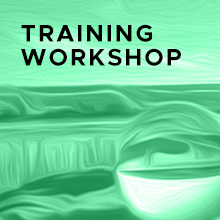Training Workshops
An Overview of the 2023 RemPlex Summit Training Workshops
Developing Statistically Defensible Site Characterization Programs Using Visual Sample Plan
 |
Visual Sample Plan (VSP) is a software tool that helps ensure the right type, quality, and quantity of data are gathered to support confident decisions and provides statistical evaluations of the data with decision recommendations. VSP couples site, building, and sample location visualization capabilities with optimal sampling design and statistical analysis strategies. Developed with support from multiple U.S. federal agencies, VSP has more than 5,000 active users and is recommended by many regulators for defensible sampling design and statistical analysis. During this 4.5-hour hands-on workshop, you will learn the basics of how to use VSP to import or create a site map, select a statistical objective, enter parameters to set up a sampling plan, export planned sample locations, and import and analyze data. We will also cover the basic concepts of statistical sampling, systematic planning, and the data quality objectives process. To fully participate, bring a laptop and install VSP version 7.19 prior to the workshop. |
Simulation Modeling of Contaminant Fate and Transport
 |
Simulation of contaminant fate and transport plays an important role in the long-term stewardship of contaminated sites. Modeling tools help scientists and regulators to better understand the feasibility of remediation technologies and the potential risk to the environment. This 4-hour workshop presents two simulation tools developed at PNNL and employed to understand and predict the behavior of contaminants and the efficiency of the remediation technologies:
In addition, participants will be introduced to artificial intelligence and machine learning enabled model-data integration concepts. Attendees will be sent information in advance on how to access eSTOMP and PFLOTRAN. |
Managing PFAS in the Subsurface: Fate & Transport and Remediation
 |
The aim of this 3-hour workshop, organized by Dr. Charles Newell of GSI Environmental Inc., is to present the current state of science related to PFAS occurrence in the environment, toxicology, exposure pathways, fate and transport processes, remediation, and long-term management of PFAS-contaminated sites. Topics with special emphasis will include comparing PFAS to other conventional groundwater contaminants; what was learned from high-resolution characterization of PFAS sites; how to measure PFAS mass discharge from the unsaturated zone and saturated zone; status of ex situ and in situ PFAS remediation technologies (experimental, emerging, proven); potential scenarios for managing PFAS groundwater plumes; and two new PFAS management concepts: PFAS monitored retention and PFAS enhanced retention. The workshop is designed to allow ample time for questions and knowledge sharing from all participants. |